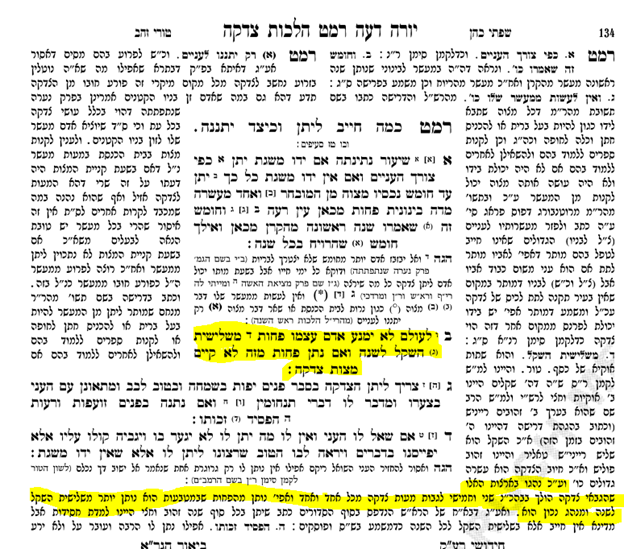BSD
Shkolim 6a (3)
Shvat 27, 5784. February 6, 2024
An enlightening observation made by the Rebbe that is somewhat related to our גמרא.
ירושלמי שקלים ב’:ג’:ה
רִבִּי פִּינְחָס בְּשֵׁם רִבִּי לֵוִי. לְפִי שֶׁמָּכְרוּ בְכוֹרָהּ שֶׁל רָחֵל בְּעֶשְׂרִים כֶּסֶף וְנָפַל לְכָל אֶחָד וְאֶחָד מֵהֶן טִבַּע לְפִיכַךְ יְהֵא כָל אֶחָד וְאֶחָד מֵהֶן נוֹתֵן שִׁקְלוֹ טִבַּע.
1- Reb Pinchas said in the name of Reb Levi the reason behind the מצווה of מחצית השקל is a כפרה for the 10 שבטים that sold Yosef.
What price did they sell him for? It says in פרשת וישב that Yosef was sold for 20 silver coins דינרים.
וַיַּֽעַבְרוּ֩ אֲנָשִׁ֨ים מִדְיָנִ֜ים סֹֽחֲרִ֗ים וַֽיִּמְשְׁכוּ֙ וַיַּֽעֲל֤וּ אֶת־יוֹסֵף֙ מִן־הַבּ֔וֹר וַיִּמְכְּר֧וּ אֶת־יוֹסֵ֛ף לַיִּשְׁמְעֵאלִ֖ים בְּעֶשְׂרִ֣ים כָּ֑סֶף וַיָּבִ֥יאוּ אֶת־יוֹסֵ֖ף מִצְרָֽיְמָה׃
 No
No
A שקל\סלע equals 4 דינרים. So 20 silver coins equals 5 שקלים\סלעים.
Dividing the 20 silver coins or 5 שקלים\סלעים by the 10 שבטים that participated in the sale of יוסף, equals a half a שקל\סלע per each שבט!
[We still need to understand why all 12 שבטים of כלל ישראל are obligated to give מחצית השקל]
2- Now the ancient question is how do we get to 10 participants when discussing מכירת יוסף?
Firstly, בנימין was not there. Secondly, although ראובן was there when they originally planned to kill him he was not present when they actually sold him. [He was shocked when he returned to the pit and יוסף was not there]
So we’re down to 9.
We will discuss some answers next week IY”H.
3- Now, hundreds of years later, (228?), at the חנוכת המשכן the 12 נשיאים donated numerous gifts to the משכן. Amongst them was a שעיר עזים אחד לחטאת.
This חטאת seems out of place in this נדבה for the משכן. It is explained that the idea behind it was a כפרה for the מכירת יוסף.

So here too the same question pops up.
Why did שבט יוסף need this חטאת? He was the victim…?
Why did ראובן and בנימין need כפרה as above?
4- The Rebbe (LS 8, page 46, footnote 33) suggests that in regards to יוסף perhaps the reason is that he indirectly ‘caused’ the hatred to him by telling the brothers his dreams.

But בנימין?
in the words of the Rebbe:
“על שלא חפשו אותו כל השנים”!
These few words perhaps encapsulate the Rebbe’s outlook on the obligation of every Jew to his brothers.
Binyomin’s did not search for his brother יוסף.

Binyomin, was was not present at the time of the מכירה. True enough. But by not searching for his brother he is faulted as much as the ones who actually sold יוסף and needs to bring a חטאת.
5- Our גמרא also states that one must give at least a third of a השקל per year.
רִבִּי חִלְקִיָּה בְשֵׁם רִבִּי אָחָא. מִיכָּן שֶׁאָדָם צָרִיךְ לְשַׁלֵּשׁ שִׁקְלוֹ שְׁלֹשָׁה פְעָמִים בַַּשָּׁנָה.
This is not the מצווה of מחצית השקל but the minimum צדקה one must give every year.
A similar גמרא is in בבא בתרא.
9a.
אָמַר רַב אַסִּי זלְעוֹלָם אַל יִמְנַע אָדָם עַצְמוֹ [מִלָּתֵת] שְׁלִישִׁית הַשֶּׁקֶל בְּשָׁנָה שֶׁנֶּאֱמַר (נחמיה י,
לג) וְהֶעֱמַדְנוּ עָלֵינוּ מִצְוֹת לָתֵת עָלֵינוּ שְׁלִישִׁית הַשֶּׁקֶל בַּשָּׁנָה לַעֲבוֹדַת בֵּית אֱלֹהֵינוּ
We mentioned that this is actually a הלכה in שלחן ערוך. YD 249, 2, Shach 4.
See the ש”ך where he mentions the מנהג of the גבאי צדקה walking around the שול on Mondays and Thursdays collecting coins so that even by giving him small coins one will reach a ⅓ of a שקל per year!

He concludes: .ומנהג נכון הוא

6 – We finished the story of last week about the question asked to the מהרי”ט concerning an אפוטרופוס that donated a large sum of money for a רפואה for the young orphan.
The issue was if this was permissible since an executor of a trust can spend funds of the trust only on items that have a ‘limit’. Such a buying for the יתום a לולב.
צדקה however, in not allowed because ,אין להם קצבה’, it has no limit.
Now what does קצבה or limit mean?
The מהרי”ט quotes our משנה to understand the definition of קצבה- limit.
מחצית השקל says Reb Shimon has a limit – only an exact מחצית השקל. A חטאת on the other hand has no limit since the cost of an animal can run up to a very large sum. Based on this interpretation of קצבה, donating for a מי שברך has no limit.
However, the מהרי”ט’s bottom line is that a non קצבה item means it is a constant occurrence – like צדקה for the poor. It’s endless.
מצוות that do not occur on a constant basis are considered קצבה. They are limited since it may not occur again and thus will not deplete the trust.
Therefore the אפוטרופוס did nothing wrong since it he donated צדקה for an ailment that is not recurring.
His ruling: an אפוטרופוס should indeed donate by estimating how much the orphan would have pledged based upon the value of the trust.